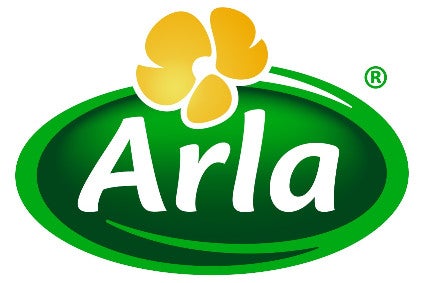
European dairy giant Arla Foods is employing AI technology to try to better forecast fresh milk supply from the co-operative’s farmer network.
The Denmark-based owner of Lurpak butter and Castello cheese said it has developed a new artificial intelligence tool to “better predict their milk intake from farmer-owners”, meaning 200 million kilos of milk can be used more effectively.

Discover B2B Marketing That Performs
Combine business intelligence and editorial excellence to reach engaged professionals across 36 leading media platforms.
Using AI enables Arla to utilise a “richer data” set, such as tracking seasonal changes, the number of farmers converting to new milk types, farmers’ geographical characteristics and how much milk they produce each day.
Michael Bøgh Linde Vinther, the director of global milk planning at Arla, said: “The better we are at predicting what our milk intake will be, the better we can plan and optimise our entire value chain, which both improves profitability for our farmer-owners and drives sustainability. The new AI tool provides us with an insight into our supply of milk that we have never had before.”
Arla added that it collects around 13 billion kilos of milk from its 10,300 farmers each year spread across Denmark, Sweden, the UK, Germany, Belgium, Luxembourg and the Netherlands, all of which will use the new AI platform that provides 1.4% more accuracy than its previously used manual methods.
AI also now makes it possible for Arla to predict how much milk should be collected three to five months ahead of time, the company claimed.

US Tariffs are shifting - will you react or anticipate?
Don’t let policy changes catch you off guard. Stay proactive with real-time data and expert analysis.
By GlobalDataArla is embracing AI along with other emerging technologies to improve its business acumen. The company recently launched a blockchain pilot programme in Finland, and last year it also rolled at Arla Milkchain, a traceability platform for consumers.
Vinther continued: “We are now able to make important strategic decisions on a more informed basis. The data has become more valid as it is now formalised in a bulletproof system rather than based on individual knowledge.
“This kind of knowledge is very valuable, as it makes us able to plan and adjust the number of Arla trucks travelling across the country. In that way, we can both reduce cost and save the environment from unnecessary CO2 emissions.”





